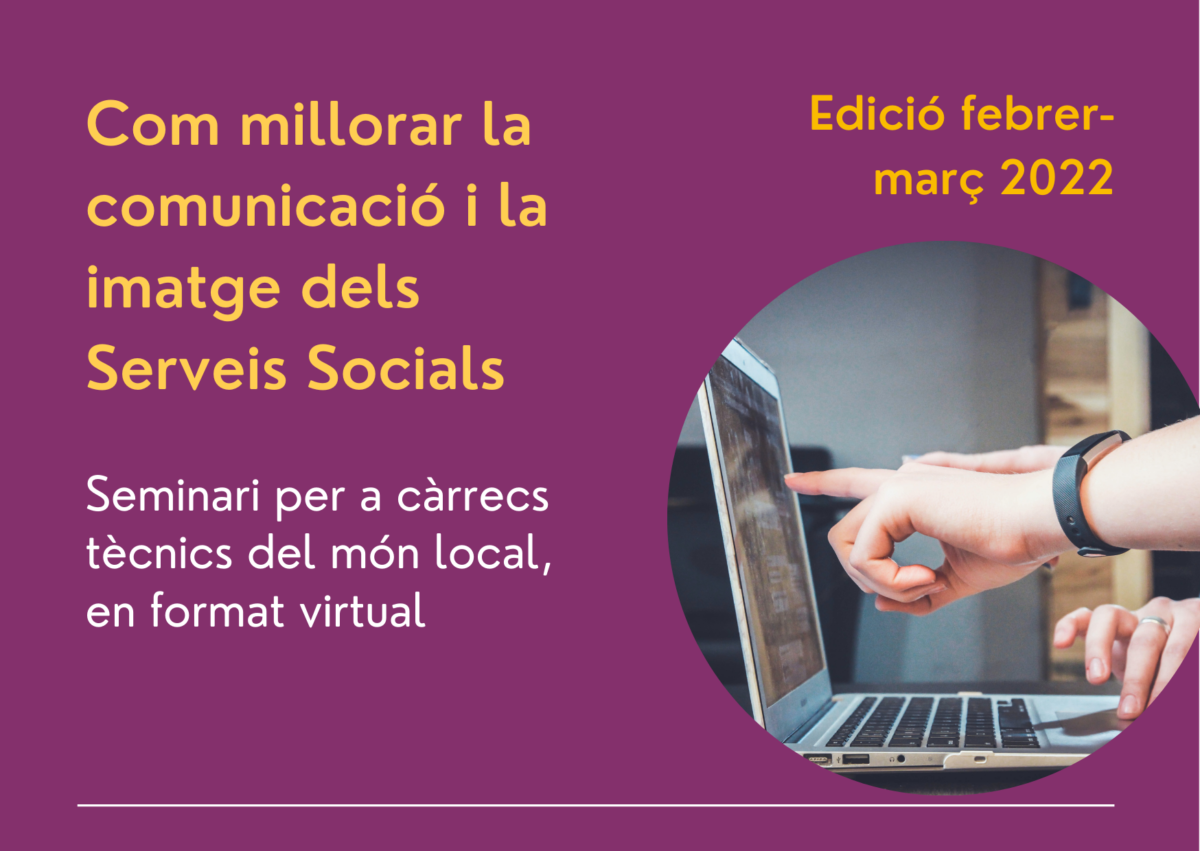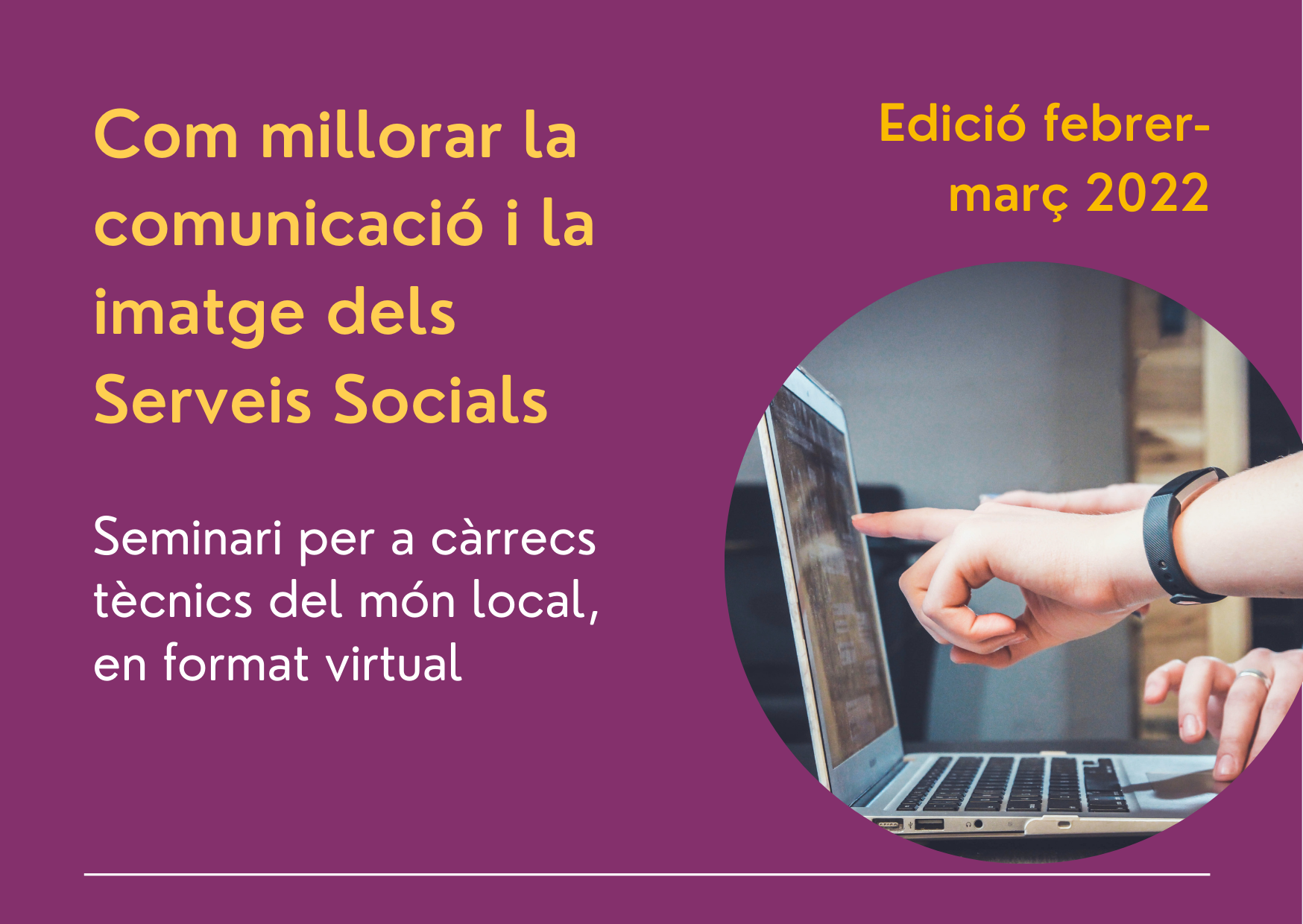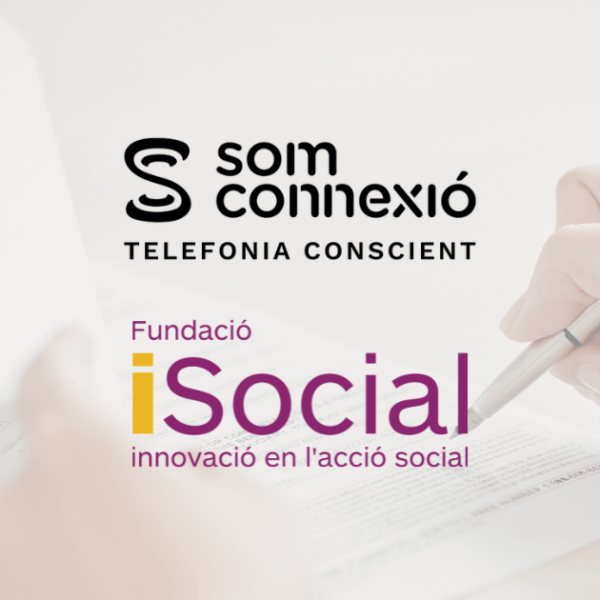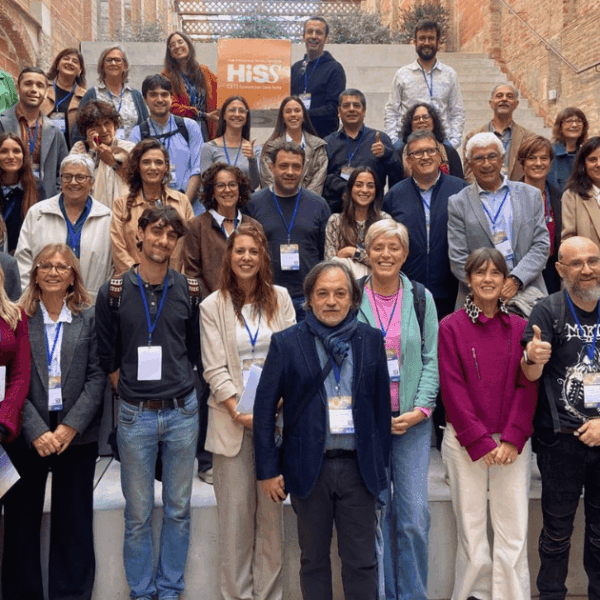Successful enrollment in the course “How to improve communication and image of Social Services”

Successful enrollment in the course “How to improve communication and image of Social Services”

On the 14th of February we inaugurated with great success of registrations a 1st edition of the course “How to improve communication and the image of Social Services”, in collaboration with the Catalan Association of Municipalities. And on March 9, a new edition for elected officials is scheduled to begin.
This first edition involves technicians from 28 Town Councils and County Councils from all over the territory, including Town Councils such as Sabadell, Rubí, Sant Boi de Llobregat, Igualada, Banyoles, Palafrugell and Sant Carles de la Ràpita, or County Councils such as El Segrià, Alt Empordà, Solsonès, La Garrotxa, Baix Penedès, or Alt Camp, among others.
The course is taught by communication science professor Víctor Puig, a member of the iSocial team, and by other people from the Zinkdo Digital agency run by Puig, such as Núria Palomares, Carolina Menéndez and Víctor Guerrero.
In order to transform Social Services so that it ceases to be the system that addresses the failures of other public systems and is built as the system that provides care throughout our life cycle, the Administrations are facing the difficulty that most of the citizenry does not feel challenged by the Social Services System, because they generally associate it with people who are in a serious situation of poverty and exclusion. And since no one wants to be part of the most excluded part of society, most citizens are not interested in or considered potential users.
In the imagination of the citizens, Social Services are not conceived as a core system of the welfare state, which attends to the entire population throughout its life, and which acts as a preventive element in the face of material social needs. , relational or linked to personal autonomy, and accompanies people to develop their life project. Nor is there any awareness of what the system does or how to use it, so it is not missing or required when it fails or is not.
Although the public and private budgets dedicated to Social Services have not stopped growing in recent years, this investment effort is often not perceived or valued by the territory (economic agents, citizens, associations…), the strengths of its action they are poorly known and even perpetuate old stereotypes and visions that have little to do with what Social Services are today.
The course therefore raises the question of how far citizens know all that Social Services can offer them, and how far the responsibility of the managers of these services goes in this possible ignorance. And at the same time to what extent can not only correct this ignorance, but also the distorted and even negative images of Social Services that sometimes circulate among the population of counties and municipalities.
Other sectors of our society have managed to reverse similar situations. This course aims to convey that innovation in Social Services is also about changing the way we explain and communicate, to give value to what we do from Social Services; to make visible its potential as an agent that contributes in a decisive way to social cohesion and the quality of life of people.
Actualitat






